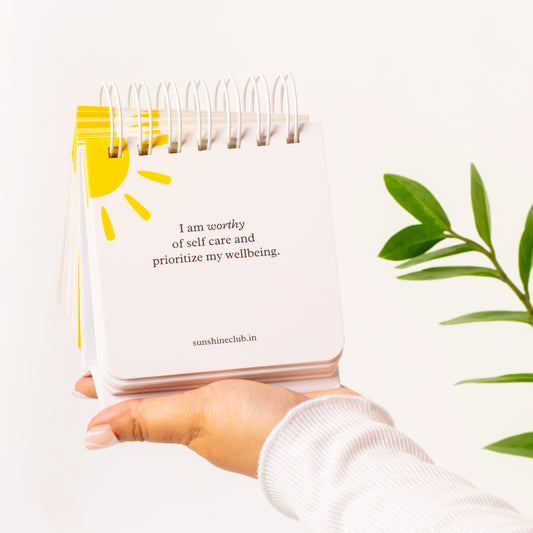
The Therapeutic Power of Writing: How Journaling Can Improve Mental Health
Share
In an age where technology often dominates our lives, the simple act of putting pen to paper may seem old-fashioned. However, the power of writing, particularly through journaling, remains a timeless and effective tool for improving mental health. Journaling offers a personal space to process emotions, reflect on experiences, and gain clarity in a world that can often feel overwhelming. This article explores the therapeutic benefits of journaling and how it can be a valuable practice for anyone looking to enhance their mental well-being.
1. A Safe Outlet for Emotions
One of the most significant benefits of journaling is its ability to provide a safe, non-judgmental space to express emotions. Unlike conversations with friends or therapy sessions, where there may be perceived expectations or judgments, journaling allows individuals to be completely honest with themselves. This freedom can be especially beneficial for those who struggle with expressing their feelings verbally.
When emotions are left unexpressed, they can build up over time, leading to increased stress, anxiety, and even depression. Journaling provides an outlet to release these pent-up emotions, reducing their intensity and helping individuals feel more in control. By acknowledging and addressing these feelings on paper, the act of writing can serve as a form of emotional release, leading to a sense of relief and calm.
2. Enhanced Self-Awareness and Understanding
Writing regularly in a journal encourages self-reflection, which can lead to greater self-awareness. As individuals write about their thoughts, emotions, and experiences, they begin to notice patterns in their behavior, triggers for certain emotions, and recurring themes in their lives. This increased awareness can be incredibly empowering, as it allows individuals to better understand themselves and their reactions to various situations.
Self-awareness is a critical component of mental health because it enables individuals to identify and address issues before they escalate. For example, someone who notices through journaling that they consistently feel anxious in social situations may decide to explore this further with a therapist or take steps to build their confidence in these scenarios. By gaining insight into their own behavior, individuals can make more informed decisions about how to manage their mental health.
3. A Tool for Problem-Solving and Clarity
When faced with challenging situations or difficult decisions, journaling can be a powerful problem-solving tool. Writing about a problem allows individuals to explore different perspectives, brainstorm potential solutions, and evaluate the pros and cons of each option. This process of externalizing thoughts on paper can often lead to greater clarity and a more structured approach to problem-solving.
Furthermore, journaling can help individuals break down complex issues into more manageable parts. By dissecting a problem and writing about it in smaller, more digestible pieces, the overwhelming nature of the issue may diminish, making it easier to tackle. This methodical approach can lead to a greater sense of control and reduce feelings of helplessness or being overwhelmed.
4. Stress Reduction and Relaxation
The act of writing itself can be calming and meditative. The repetitive motion of the pen moving across the page, coupled with the focus required to translate thoughts into words, can help quiet the mind and reduce stress. Many people find that journaling before bed, for example, helps them unwind and sleep better.
Moreover, journaling can be a form of mindfulness, as it encourages individuals to stay present and engaged in the moment. Mindfulness has been shown to reduce stress and improve overall mental health by helping individuals detach from the constant stream of thoughts that can contribute to anxiety and depression.
5. Tracking Progress and Growth
Journaling provides a tangible record of one’s thoughts, feelings, and experiences over time. This record can be incredibly valuable for tracking personal growth and progress in mental health. By looking back at past entries, individuals can see how far they have come, which can be motivating and encouraging.
For those in therapy, journaling can complement their treatment by providing a way to document insights and breakthroughs that occur between sessions. It can also serve as a communication tool, helping individuals articulate their thoughts and feelings to their therapist more clearly.
6. Building Resilience
Writing about difficult experiences can help individuals process trauma and build resilience. Studies have shown that expressive writing, where individuals write about traumatic or stressful events, can lead to improvements in mental health. This type of writing allows individuals to confront and make sense of painful experiences, which can reduce their emotional impact over time.
By reframing negative experiences through writing, individuals can find meaning or lessons in their challenges, which can foster a sense of strength and resilience. This process can be particularly helpful for those recovering from trauma, as it provides a constructive way to work through their emotions.
Conclusion
Journaling is a simple yet powerful tool for improving mental health. Whether used as a daily practice or as a tool during difficult times, journaling offers numerous benefits, including emotional release, enhanced self-awareness, problem-solving, stress reduction, and the ability to track personal growth. By making journaling a regular part of their routine, individuals can gain valuable insights into their thoughts and emotions, leading to greater mental clarity and emotional well-being. In a fast-paced world filled with constant distractions, taking the time to slow down and write can be a profound act of self-care.








